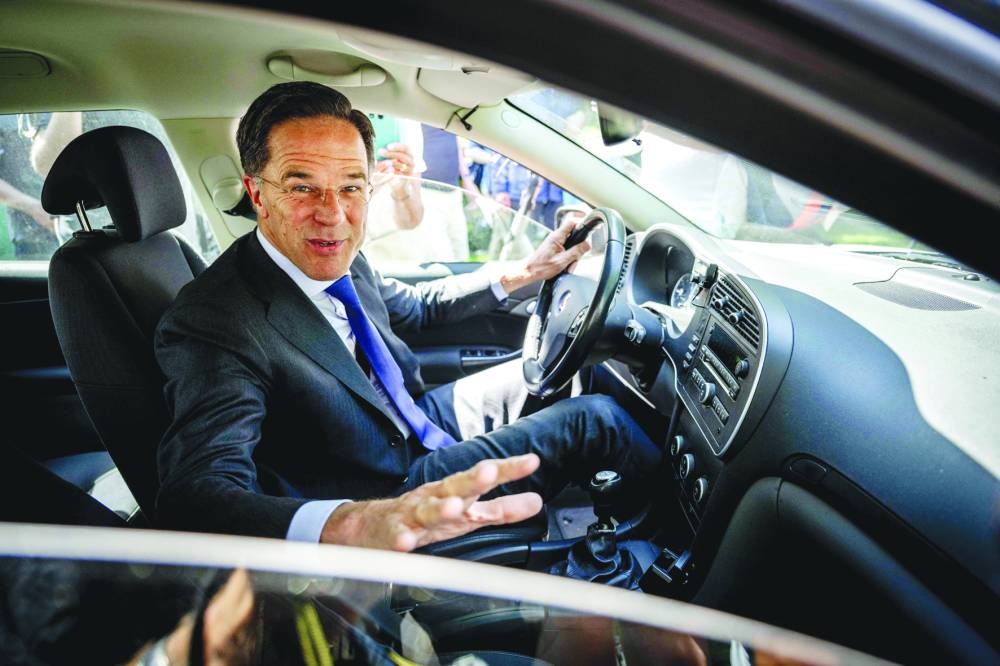Dutch Prime Minister Mark Rutte met with King Willem-Alexander yesterday to discuss a caretaker administration, the day after his centre-right government collapsed following a dispute over migration policies.
Rutte declined to comment on the hour and a half-long talks after he left the palace in The Hague.
“These are confidential meetings,” he told reporters.
The next major step will be to dissolve parliament, but first there will be a debate about the government’s resignation in the Dutch lower house planned for tomorrow.
After parliament is dissolved, an election will be held, expected in November.
Rutte, 56, in power since 2010, is The Netherlands’ longest serving prime minister. He told a press conference on Friday he’d like to run for a fifth term but would consult with his party before making a final decision.
The crisis in Dutch politics came after Rutte’s conservative VVD party sought to limit the flow of asylum seekers to The Netherlands.
Tensions came to a head this week when Rutte demanded support for a proposal to limit the arrival of children of war refugees who are already in the Netherlands and to make families wait at least two years before they can be reunited.
That was opposed by the small Christian Union and liberal D66, ultimately bringing the government down.
As head of state, the king is expected to ask Rutte’s coalition to stay on as a caretaker government until a new administration is formed after the election, a process which in the fractured Dutch political landscape usually takes months.
Before meeting the king, Rutte tweeted he had called Ukrainian President Volodymyr Zelensky to ensure him his government’s caretaker status would not affect Dutch support for Ukraine. Not since the 2015-2016 migration crisis has immigration been such a fault line in European politics.
Support for Germany’s far-right AfD has surged over the last six months. And in Spain polls suggest the far-right Vox party could enter government following elections this month.
In the Netherlands, migration is somewhat overshadowed by farmers’ protests against government plans to limit nitrogen emissions, which they say will spell the end of many farms.
Farmers’ protest party BBB became the biggest party in March provincial elections.
In the latest Ipsos poll, carried out a week before the government collapse, Rutte’s VVD was projected to remain the biggest party in the 150-seat parliament with 28 seats. But BBB was predicted to surge from just one seat now to 23, making it the second largest.
BBB also supports a stricter migration policy and has suggested a possible yearly cap of 15,000 asylum seekers.
The Netherlands already has a one of Europe’s toughest immigration policies. Still, asylum applications jumped by a third last year to over 46,000, and the government has projected they could top 70,000 this year — above the previous high of 2015.

Outgoing Prime Minister Mark Rutte leaves the Huis ten Bosch Palace after he tendered his resignation to King Willem-Alexander in The Hague yesterday. (AFP)
